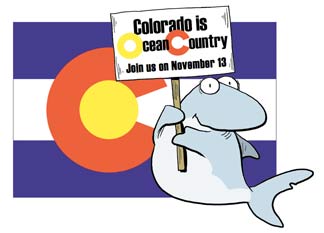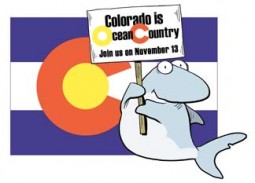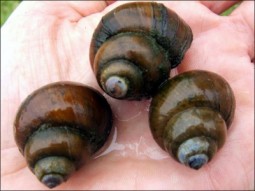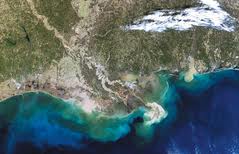
Sustainable Agriculture (starts 3:06): We couldn’t feed the planet without nitrogen, a vital nutrient for crops. But most soils don’t produce enough of it to feed anywhere near our 7 billion-plus humans on the planet. So, for nearly a century we’ve been applying synthetic fertilizer—mainly nitrogen and phosphorus — to grow crops for animals and people. But we have overindulged, creating vast amounts of waste, in the form of nitrogen pollution of waterways and the atmosphere. State and federal regulations have pressured growers to dramatically reduce fertilizer runoff from their fields. But it’s not been enough. Another approach – call it the carrot versus the stick – is also taking hold. Major food retailers, wholesalers, and producers, such as Walmart, United Suppliers and Unilever are transforming their whole supply chains, making food production less carbon- and nitrogen-intensive. Suzy Friedman, a sustainable agriculture expert with the Environmental Defense Fund, discusses with host Susan Moran how programs such as SUSTAIN help large food companies shrink their environmental footprint.
Hosts: Natalia Bayona, Susan Moran
Producer: Susan Moran
Engineer: Tim Russo
Executive Producer: Susan Moran
Listen to the show:
Podcast: Play in new window | Download (Duration: 26:26 — 24.2MB)
Subscribe: RSS




 Feature #1 (time mark 5:30) When people think of Colorado, they usually don’t think about “oceans”. After all, Colorado doesn’t have much of a coastline these days, though it was definitely had oceanfront property a few hundred million years ago. However, being in a landlocked state doesn’t mean that there isn’t any thing we can do to impact the health and ecology of the ocean and marine biology. Co-host Joel Parker talks with Vicki Goldstein, founder and president of the
Feature #1 (time mark 5:30) When people think of Colorado, they usually don’t think about “oceans”. After all, Colorado doesn’t have much of a coastline these days, though it was definitely had oceanfront property a few hundred million years ago. However, being in a landlocked state doesn’t mean that there isn’t any thing we can do to impact the health and ecology of the ocean and marine biology. Co-host Joel Parker talks with Vicki Goldstein, founder and president of the  Feature #2 (time mark 14:10) Nitrogen – we can’t live without it, but you can have too much of a good thing. In its gaseous form nitrogen is harmless and makes up nearly 80 percent of the atmosphere. The worldwide population never would have reached 7 billion people without nitrogen, in the form of chemical fertilizer. But excess nitrogen –from fertilizer runoff, manure, human sewage and other sources is wreaking havoc on the environment. Co-host Susan Moran talks with John Mischler, a PhD student at CU Boulder, who is researching worms and snails in Colorado and Africa. He talks about how excess nutrients in ponds, lakes and elsewhere can lead to the spread of parasitic disease from trematodes to snails to us.
Feature #2 (time mark 14:10) Nitrogen – we can’t live without it, but you can have too much of a good thing. In its gaseous form nitrogen is harmless and makes up nearly 80 percent of the atmosphere. The worldwide population never would have reached 7 billion people without nitrogen, in the form of chemical fertilizer. But excess nitrogen –from fertilizer runoff, manure, human sewage and other sources is wreaking havoc on the environment. Co-host Susan Moran talks with John Mischler, a PhD student at CU Boulder, who is researching worms and snails in Colorado and Africa. He talks about how excess nutrients in ponds, lakes and elsewhere can lead to the spread of parasitic disease from trematodes to snails to us.

